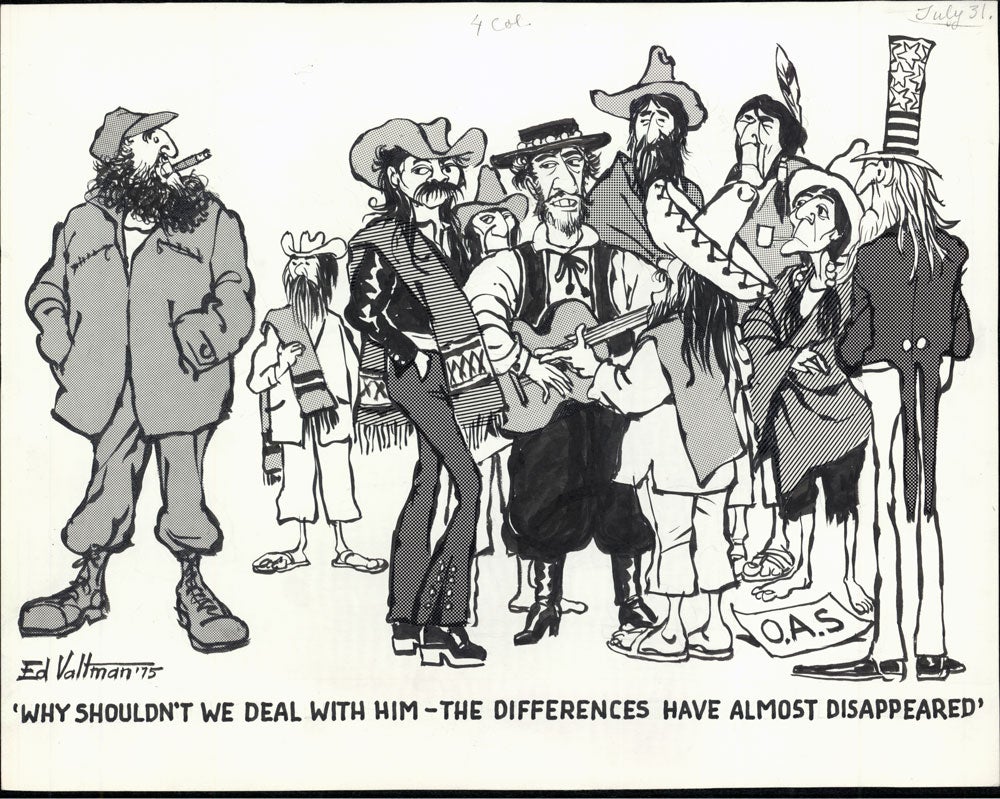
“Why Shouldn’t We Deal With Him…?” (July 31, 1975)
by Edmund Siegrfried (Ed) Ed Valtman (1914-2005)
11.5 x 14.5 in., ink on board
Coppola Collection
A native of Tallinn, Valtman fled Estonia when the USSR reoccupied it in 1944. After four years in a displaced persons camp in Germany, he emigrated to the US in 1949.
Valtman worked for The Hartford Times from 1951 until his 1975 retirement. He may have been one of the few American cartoonists who had experienced Soviet rule, and he was noted for his caricatures of Cold War-era communist leaders like Nikita Khrushchev, Leonid Brezhnev, and Fidel Castro.
He won the Pulitzer Prize for an August 31, 1961 cartoon featuring Fidel Castro.

The Organization of American States (OAS) is a regional multilateral organization that includes all 35 independent countries of the Western Hemisphere (though Cuba, suspended by the OAS in 1962, still does not participate). A group of 21 countries, mainly from Latin America, established the OAS in 1948 as a forum in which the nations of the hemisphere could engage one another and address issues of mutual concern. The next countries to join were Barbados, Trinidad and Tobago (1967), Jamaica (1969), and Grenada (1975).
On July 29, 1975, the OAS ended political and economic sanctions against Cuba, abolishing an embargo imposed in 1964 as a penalty for fostering Communist guerrilla activities.
The decision was passed by 16 of the 21 voting members, including the United States.
Secretary of State Kissinger had said that the United States would not make a move to improve relations with Cuba until the OAS embargo was ended. After the vote, the US said that there may be “conversations that might lead to some kind of normalization” between Washington and Havana.
The cartoon speaks to the wide and independent political variation that existed (and still exists) in the Americas. Seven original members had maintained diplomatic and trade relations with Havana in defiance of the sanctions: Argentina, Colombia, Mexico, Panama, Peru, Trinidad and Tobago and Venezuela. Jamaica and Barbados also maintained diplomatic ties.
The resolution was passed by Argentina, Bolivia, Colombia, Costa Rica, Ecuador, El Salvador, Guatemala, the United States, Haiti, Honduras, Mexico, Panama, Peru, the Dominican. Republic, Trinidad and Tobago, and Venezuela.
Opening the session, Costa Rica’s President, Daniel Oduber Quirós, recalled that as Foreign Minister he had fulfilled the “sad duty” of voting for the embargo in 1964. Now, he said, it was time to “allow for ideological pluralism” in the hemisphere and lift the sanctions.

